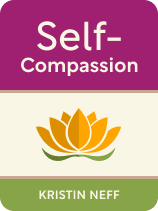

This article is an excerpt from the Shortform book guide to "Self-Compassion" by Kristin Neff. Shortform has the world's best summaries and analyses of books you should be reading.
Like this article? Sign up for a free trial here.
Why is self-compassion hard? Why are we so hard on ourselves?
In Self-Compassion, Kristin Neff says that, despite the importance and benefits of self-compassion, many people spend their lives criticizing and judging themselves. This happens because we’re conditioned to compare ourselves to others and because children of critical parents often become self-critical adults.
Read more on why self-compassion is difficult to practice for some people.
Reason 1: People Are Hardwired to Compare Themselves to Others
Why is self-compassion hard? Neff says that one of the reasons is that humans’ default mode of operation is to either puff ourselves up or tear ourselves down because we have a primal need to fit into hierarchical social groups, which keep us safe and provide resources like protection and food. We try to gain acceptance into these groups by either showing that we’re successful (likable and worthy of inclusion) or submissive (willing to do whatever it takes to be included). As a result, we constantly compare ourselves to others to demonstrate either our dominance over or willingness to sublimate ourselves to others in the group.
How You Fare When You Compare
Being curious about how you’re faring relative to others is a natural tendency, according to social comparison theory. We use comparisons to try to understand our place in the world. Researchers agree with Neff that people make two types of comparisons and label them as “upward” and “downward” comparisons (the first centers on comparing yourself to someone you think is better off than you, the second to someone you think is worse off).
Additionally, they offer more detailed information on why you’d be inclined to make an upward or downward comparison. You might make an upward comparison when looking for inspiration or hope—as a means of figuring out how to improve your circumstances and overcome obstacles. In contrast, you might make a downward comparison when your self-esteem is threatened. In both cases, you risk glossing over the suffering of the people you’re comparing yourself to.
But researchers say there are also upsides to comparisons if you approach them thoughtfully. For example, if you’re mindful of your common humanity, comparing your situation to that of people you believe to be less fortunate may inspire deeper compassion in you. When making upward comparisons, reminding yourself that everyone suffers can help you temper feelings of jealousy.
Reason 2: Children of Critical Parents Become Self-Critical Adults
Neff says that research shows that children of critical parents are more likely to criticize themselves as adults. Children who internalize their parents’ criticism believe they’re bad, flawed, and unworthy of being accepted for who they truly are, and that to receive their parents’ love they have to be what their parents want them to be: Perfect. This sets them up to believe that “perfection” is a legitimate, achievable goal, which is a recipe for failure and rejection.
(Shortform note: Not only can parental criticism lead children to self-criticize, it can alter children’s neural responses to reward and punishment. Research shows that overt criticism magnifies children’s reactivity to losses and limits their reactivity to gains, setting them for longer-term self-esteem issues that can last through adulthood.)
Neff says that to lessen the blow of being criticized by their parents, many children learn to criticize themselves before they get beat to the punch. When children who consistently self-criticize grow up, they often inadvertently undermine their efforts to get close to and receive support from others by seeking out relationships with people who validate their negative self-assessment. This is because the familiar feeling they get from having someone confirm that they’re as worthless as they think they are creates a sense of stability.
Neff says that when you criticize and judge your suffering instead of showing yourself compassion, you shut down and disconnect from others, tuning you out of the human experience and into a lone island of misery. Self-criticism leads people to feel inadequate, inferior, ashamed, and isolated, which can manifest in damaging behavior like alcohol and drug abuse, self-injury, and suicide attempts.
The antidote to the insecurity, anxiety, and hopelessness that self-criticism produces is to acknowledge your negative assessments. To do this, show yourself compassion: Accept that your suffering is real and valid, gently comfort yourself to address your pain, and acknowledge that your imperfections—which are part of the human experience—are the connection point that bonds you with all of humanity.

———End of Preview———
Like what you just read? Read the rest of the world's best book summary and analysis of Kristin Neff's "Self-Compassion" at Shortform.
Here's what you'll find in our full Self-Compassion summary:
- The key practices, benefits, and obstacles to embracing self-compassion
- How self-compassion can improve your relationships with others
- The two biggest obstacles to self-compassion and how to overcome them






